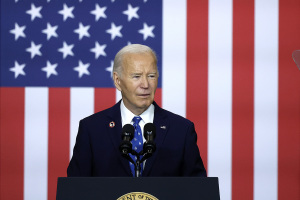Microsoft Powered HTC Smartphones to Conquer Apple and Android?
Among several “war scenarios” going on in the world, such as “The War on Terrorism,” “The War on Drugs,” and “The War on Bullying,” a new war has now emerged called “The War of the Smartphones.”
HTC has now launched two new “Mango” smartphones named the Titan and Radar, which are powered by Microsoft’s Windows Mango operating system, also known as Windows Phone 7.5.
The new devices will be officially released in Europe and Asia next month, and are being launched by Microsoft in hopes to gain market share from the other smartphone leaders, Apple and Android.
According to Computerworld, HTC is the second company to release devices that run the Mango system. The first being the IS12T made by Japanese company, Fujitsu Toshiba Mobile Communications, and is only available in Japan.
“The War of the Smartphones” will be an uphill battle for Microsoft, as it competes with Google, which runs Android, and which also acquired Motorola Mobility last month for $12.5 billion.
Analyst firm IDC reported to Computerworld that Microsoft held only 2.7 percent of the smartphone OS market for the first quarter of this year, a share which decreased from last year despite a reworking of its mobile operating system.
Both Mango devices sport molded aluminum bodies according to Computerworld, which is a similar design to HTC’s Desire and Sensation phones.
The Titan is more powerful than the Rader, running on a 1.5GHz processor and holding 16GB's worth of memory with 512MB of RAM. It also sports a 4.7-inch “super LCD” touchscreen with 480X800 WGVA resolution.
Radar trails slightly in specs with a 1GHz processor and half the memory with the same amount of RAM. It also sports a 3.8-inch screen and a five megapixel camera, while the Titan’s camera is 8 megapixels.
Both devices can shoot HD video and have a 28-millimeter wide-angle lens.
According to Computerworld, the Mango smartphones will run a mobile version of Internet Explorer 9 browser and support HTML 5, the latest rewrite of the web’s mother coding language.
Microsoft also will enforce a tighter integration with cloud services on the new Mango devices and users will be able to share documents created in Microsoft’s Office productivity suite with Office 365.





























